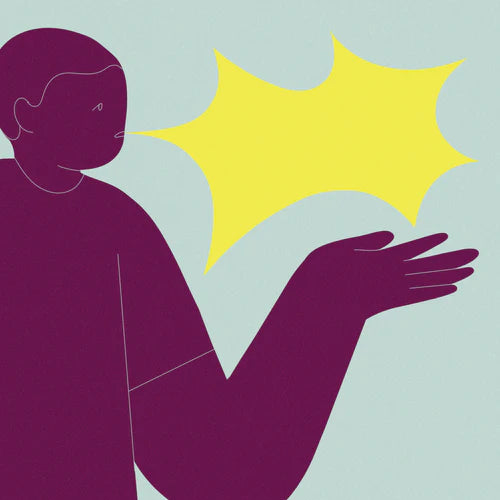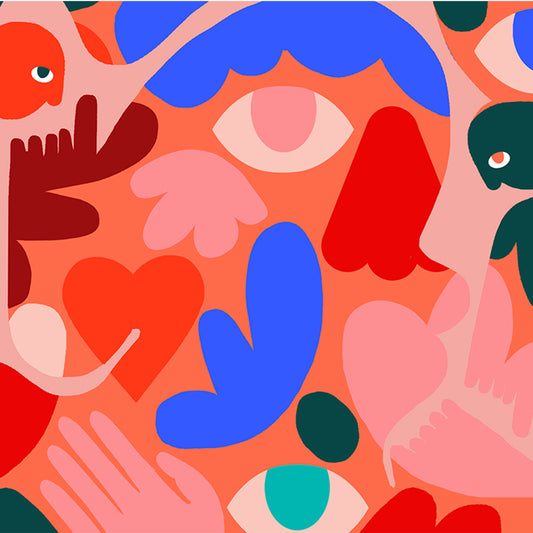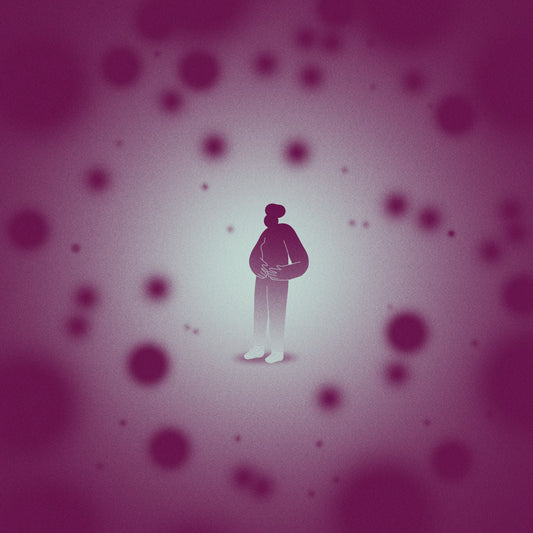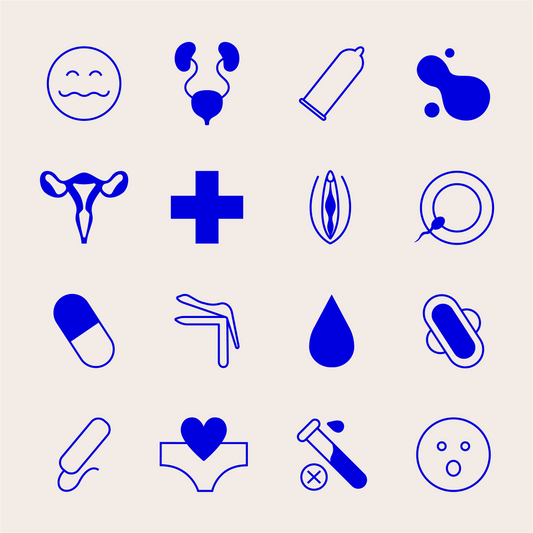Alexandra Fine, Credentialed Sexologist, M. Psych | Written by Dame
Any penis owner who spends time online, watches commercial TV or reads magazines (does anyone still read magazines?) has probably thought – at least a little – about their libido.
Why? Because never-ending ads for male enhancement pills and supplements could make even a healthy penis-haver start to wonder if their sex drive is as strong as it “should be.”
Sadly, those commercials and ads aren’t created to help those who are experiencing an unusually low libido or other problems in bed. They’re designed to sell as much product as possible, whether or not the potential customers really need help. (Important note: low libido isn’t the same thing as erectile dysfunction, and they’re not necessarily treated the same way.)
Here’s the honest truth: everyone’s sex drive is different. An enormous number of people with relatively-low sexual desire live happy and fulfilling lives. Their sex lives may be happy and fulfilling as well, as long as they have a partner with a similar libido.
On the other hand, mismatched sexual drives can cause big problems in a relationship. Just as concerning can be a penis-haver’s discovery that their sex drive has decreased over time.
Miracle supplements sold online aren’t likely to help with those issues, but that doesn’t mean people simply have to live with a reduced sex drive.
Let’s look at the common causes of low libido, and possible solutions.
What Determines Libido?
Libido, which is a person’s desire for sexual activity, is a function of physiological, psychological, hereditary and social factors. In short, a complicated mix of personal biology and experience determines sex drive – which is why there’s no such thing as a “normal” libido. Everyone is different, so their baseline level of sexual desire is different as well.
Physiological Factors
The libido is regulated by the brain, and it’s affected by a number of different hormones and neurotransmitters (molecules that transmit messages throughout the body).
Testosterone is the primary “sex hormone” in penis-havers, responsible for the development of sex organs, gender-specific body characteristics – and sex drive. Sex hormones like estrogen and progesterone are more important for vulva-havers’ sexual health, but still play smaller roles in penis owners.
Serotonin and oxytocin, among other hormones, affect the sex drive in different ways. Higher levels of serotonin are known to inhibit sexual desire and behavior, and oxytocin (often called the “love” or “cuddle” hormone) appears to encourage sexual intimacy. Research shows that neurotransmitters like norepinephrine and dopamine are also part of the complicated neurological process that boosts or reduces libido.
Ideally, when the body is healthy, it works like a fine-tuned machine to govern sexual desire and performance. Illnesses, diseases, medications and other medical considerations can upset that balance – causing a low sex drive or even a complete lack of interest in sex. Things as simple as energy levels or lack of sleep can cause a lower libido. And one more physiological factor plays a huge role in determining sex drive: age.
We’ll discuss all of those potential problems in more detail shortly.
Psychological Factors
Psychological states can affect the desire for sex. The most obvious is mood; research has shown that some people’s libidos increase when they are stressed or depressed, because sex can provide benefits like stress relief or self-validation. Others, by contrast, have lower levels of sexual interest when suffering with anxiety or depression. Factors such as low self-esteem, a poor body image or concerns about sexual performance can lead to decreased libido as well.
Hereditary Factors
In recent years, studies have pointed to genetics as another potential factor in low sex drive. Landmark research on this subject was done at the Hebrew University in Jerusalem and published in 2006; it was able to identify a specific genetic variation in the body’s dopamine D4 receptor that predicted sexual desire, function and arousal.
Social Factors
A wide range of social and lifestyle issues can be responsible for a lowered sex drive. The most common revolve around relationship difficulties. But factors like hectic daily activities with little time to enjoy sex, a living situation with little privacy, or even regular exposure to noisy or bright environments, can affect libido.
Let’s dig into some the specifics.
Common Causes of – and Treatments for – Low Libido in Men
Low Testosterone Levels
We’ve mentioned the ubiquitous ads for testosterone-boosting supplements. Those pills are unlikely to help with sex drive; Men’s Health reports that, at best, they only provide a small benefit when combined with a healthy diet and regular exercise.
The actual problem, however, is very real.
Testosterone is the hormone primarily responsible for sexual development in penis-havers. As you might expect, testosterone levels normally reach their peak during the teenage years, from puberty through the late teens. Those levels remain relatively steady until an age somewhere between 30 and 40, and then decline by an average of one-to-two percent per year. (That’s very different than in vulva-havers, whose hormone levels decline precipitously when they reach menopause.)
There’s been no link discovered between “low T” and either sexual dysfunction or mortality. Since testosterone is a key factor in libido, however, penis owners often experience a gradual decline in their sex drive as they age.
There’s no simple fix that works to boost age-related drops in testosterone levels, but research has shown that regular exercise (particularly resistance training), a healthy and balanced diet, sufficient vitamin and minerals intake (especially vitamin D), and getting enough sleep can help the body maintain optimal testosterone production.
Age isn’t the only reason that testosterone levels – and libido – can drop. Younger penis-havers may experience the low testosterone problem known as male hypogonadism because of a number of other medical conditions:
- Chronic illnesses and diseases like type 2 diabetes, heart disease, high blood pressure and HIV/AIDS
- Injury to the testes
- Thyroid or pituitary gland problems or tumors
- Some opioids and steroids, chemotherapy, prostate cancer medications
- Obesity
- Chronic sleep apnea
Some doctors prescribe testosterone replacement therapy for their younger patients. Others try to avoid it, though, because of possibly-serious side effects ranging from acne and skin irritation, to urinary problems, shrunken testicles and breast enlargement. Many patients say this therapy has revitalized their sex life, but it should never be tried before detailed consultations with healthcare professionals.
Health Conditions and Medications
A low libido can be due, at least in part, to chronic health problems and diseases known to cause pain and/or fatigue. Some of the common culprits affecting penis-havers: fibromyalgia, arthritis, diabetes, CFS (chronic fatigue syndrome), kidney or liver failure, heart disease and cancer. The physicians treating these diseases should be consulted directly for suggestions on coping with low libido.
We’ve already mentioned that some prescription drugs can lead to a loss of testosterone. There are also medications which have been linked directly to a loss of libido, including beta blockers and diuretics used to treat hypertension, the antacid Tagamet, anticonvulsants and antipsychotics, and chemotherapy. Finding alternative medications is the best approach for treating these medications’ effects on sex drive.
The worst offenders of all are several classes of anti-depressants. SSRIs like Lexapro, Paxil, Zoloft and Prozac all work by regulating serotonin (SSRI stands for selective serotonin reuptake inhibitors); as we’ve discussed, serotonin plays a role in regulating “male sexual drive and function,” so it can affect libido while also causing problems like erectile dysfunction and premature ejaculation.
Other classes of anti-depressants like MAOIs and tricyclics can have a somewhat lower impact on libido as well. The best approach for treating low libido caused by antidepressants is to try a lower dose, or switch to meds like wellbutrin or trintellix which have been shown to have fewer sexual side effects.
Speaking of depression…
Depression and Stress
Depression is defined as “a mood disorder that causes a persistent feeling of sadness and loss of interest.” That often includes a loss of interest in sex, and needless to say, a persistent feeling of sadness isn’t exactly conducive to sexual arousal. In many cases, antidepressant medications are used to treat the medical issue; as you’ve learned, however, they may make libido problems even worse. The combination of psychotherapy and the “right” medications can help resolve both depression and drug-related sexual side effects. Therapy is also indicated for related issues such as poor self-esteem or poor body image.
There are some people who cope with stress by having sex, but for many others, stress and anxiety are common mood-related causes of low sex drive. Stressors associated with everyday life, and stress and anxiety related to relationship issues and sexual performance are the most common libido-killers. But other serious mental health issues like post-traumatic stress can have a major impact on libido as well.
In these cases of low sex drive, stress relief strategies – and eliminating the issues responsible for the stress, if possible – are usually the first approaches used to treat the problem. Therapy or counseling (including sex therapy for performance problems, or couples’ counseling in the case of relationship problems) may also be indicated, in conjunction with the possible use of anti-stress medications.
Lifestyle Issues
A number of lifestyle factors may be responsible for a low libido in men. Lack of exercise, poor diet, not enough sleep, smoking, excessive alcohol consumption and drug use can all contribute to a low sex drive and other sexual dysfunction issues. Lifestyle changes (of course, easier said than done) may reverse or reduce negative effects on the libido – and improve overall health and wellness at the same time.
Is It Really Low Libido?
As we discussed at the start, a naturally-low sex drive may not be the sign of a problem that needs to be addressed.
If you simply don’t want sex as much as the guys at work or in the locker room do, that isn’t an immediate signal that you need to take action. First, ask yourself two questions:
- Is my sex drive much lower than it used to be?
- Is my “low libido” causing issues in my life or in my relationship(s)?
If the answer to either question is “yes,” that’s when it may be time to speak with a medical professional.





















































1 comment
HOW I SAVED MY RELATIONSHIP IN JUST 24 HOURS…CONTACT THE SPELL CASTER VIA THE WHATSAPP +2347071347485
EMAIL: {drituasteven@gmail. com}
I was on the verge of losing everything…until I turned to spiritual help.I loved my husband deeply but out of nowhere he grew cold, distant and uninterested in our marriage. We were drifting apart fast and divorce seemed inevitable no matter what I did nothing worked. My heart was shattered but something inside me said: This love is worth fighting for.
Then the truth came to light: A woman from his workplace had used dark voodoo to pull him away from me. She was spiritually manipulating him and I had no idea. That’s when I discovered Dr. Itua is a powerful and genuine spell caster who changed everything.Within 24 hours of contacting him Dr. Itua reversed the evil spell. My husband came back to me loving, attentive, loyal and completely obsessed. He now cherishes me, respects me and shows me affection like never before and the other woman? Her influence disappeared. Her spell was completely destroyed.But here’s what amazed me even more: I learned that Dr. Itua doesn’t only help with love issues. He casts a wide range of powerful effective spells for different problems his clients face. I saw countless testimonials from people around the world. Here are just some of the spells Dr. Itua offers:
Revenge or death spell to destroy your enemy
Love & Relationship Spells
Marriage Restoration Spells
Breakup/Separation Spells
Attraction & Obsession Spells
Divorce Prevention Spells
Fertility & Pregnancy Spells
Job & Career Success Spells
Business & Financial Prosperity Spells
Protection Spells (from evil eyes, curses, spiritual attacks)
Healing & Health Spells
Court Case & Legal Favor Spells
Bad Luck Removal & Cleansing Rituals
Whether you’re facing heartbreak, financial setbacks, spiritual attacks, or simply need a major breakthrough, Dr. Itua has the spiritual power to help you. He is real. He is powerful. And his work speaks for itself.
Contact Dr. Itua Today
WhatsApp: +2347071347485
Email: {drituasteven@gmail. com} Don’t wait until it’s too late. Take control of your destiny and fight for your happiness today.